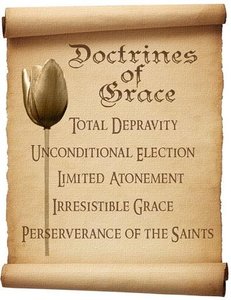 Tom Ascol, at the Founders blog writes:
Tom Ascol, at the Founders blog writes:
D. Martyn Lloyd-Jones once observed that “the ignorant Arminian does not know the difference between Calvinism and hyper-Calvinism.” The good news is that not all Arminians are ignorant. The bad news, however, is that such ignorance is not limited to Arminians.
Throughout evangelical history, where evangelical Calvinism as spread among Bible believing Christians, charges of hyper-Calvinism inevitably arise from those who do not know the difference. That pattern is being repeated today both within and beyond the borders of the Southern Baptist Convention. Examples of such careless accusations are not hard to find.
One of the most recent and most egregious came in the exhibit hall during the recent Southern Baptist Convention in Houston, Texas. On Monday, June 10, 2013, the day before the convention actually began, Baptist21 interviewed the president of Louisiana College about the treatment of some Calvinistic professors whose contracts were not renewed by the administration. In the course of responding to questions that he had been sent in advance, Dr. Joe Aguillard (though he probably would not identify himself as an Arminian) proved Lloyd-Jones’ point.
That display of doctrinal misunderstanding reminded me of the present need to clarify repeatedly and rigorously difference between Calvinism and hyper-Calvinism. Some writers and teachers seem to confuse them so often and so willingly that one must wonder if the practice is intentional. In one sense, hyper-Calvinism, like Arminianism, is a rationalistic perversion of true Calvinism. Whereas Arminianism destroys the sovereignty of God, hyper-Calvinism destroys the responsibility of man. The irony is that both Arminianism and hyper-Calvinism start from the same, erroneous rationalistic presupposition: Man’s ability and responsibility are coextensive. That is, they must match up exactly or else it is irrational. If a man is to be held responsible for something, then he must have the ability to do it. On the other hand, if a man does not have the ability to perform it, he cannot be obligated to do it.
The Arminian looks at this premise and says, “Agreed! We know that all men are held responsible to repent and believe the gospel [which is true, according to the Bible]; therefore we must conclude that all men have the ability in themselves to repent and believe [which is false, according to the Bible].” Thus, Arminians teach that unconverted people have within themselves the spiritual ability to repent and believe.
The hyper-Calvinist takes the same premise (that man’s ability and responsibility are coextensive) and says, “Agreed! We know that, in and of themselves, all men are without spiritual ability to repent and believe [which is true, according to the Bible]; therefore we must conclude that unconverted people are not under obligation to repent and believe the gospel [which is false, according to the Bible].”
In contrast to both of these, the Calvinist looks at the premise and says, “Wrong! While it looks reasonable, it is not biblical. The Bible teaches both that fallen man is without spiritual ability and that he is obligated to repent and believe. Only by the powerful, regenerating work of the Holy Spirit is man given the ability to fulfill his duty to repent and believe.” And though this may seem unreasonable to rationalistic minds, there is no contradiction, and it is precisely the position the Bible teaches.
Why are these things so important to our discussion? Baptists have been confronted with these theological issues throughout their history. The Arminianism–Calvinism–hyper-Calvinism debate has played a decisive role in shaping our identity as Baptists, and particularly our identity as Southern Baptists. The Southern Baptist Convention has never welcomed either Arminians or hyper-Calvinists within their ranks. It has, however, from its beginning been home to evangelical Calvinists. In fact, though we cannot say there were only Calvinists among the original generation of Southern Baptists, Calvinism was certainly the overwhelming doctrinal consensus among the delegates that met in 1845 to form the convention.


 Arminius moved to Amsterdam to pastor a prominent church there. As a pastor, he was called upon to defend Calvinistic teaching against Dirck zoon Koornheert. In preparing his defense of traditional Calvinist doctrine, Arminius became convinced of his opponent’s teaching.
Arminius moved to Amsterdam to pastor a prominent church there. As a pastor, he was called upon to defend Calvinistic teaching against Dirck zoon Koornheert. In preparing his defense of traditional Calvinist doctrine, Arminius became convinced of his opponent’s teaching.